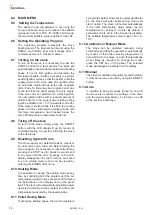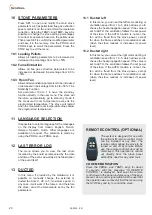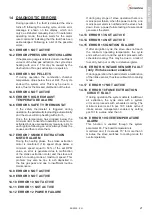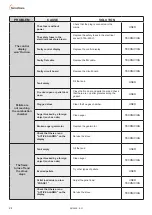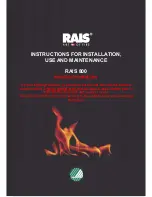
IT
ALIANO
ENGLISH
11
08/2020 - EN
C
G
S
Fig. 5.4
5.4 COMBUSTION AIR
During use, the stove withdraws a certain quantity
of air from the environment where it is located
(except for products in the hermetic series, which
can withdraw air directly from the outside); this air
must be reintegrated through an external air intake
(fig. 5.3 - PA = Air Intake).
If the rear wall of the stove is an external wall,
create a hole for suction of the combustion air at a
height of approximately 20-30 cm from the ground,
respecting the dimensional indications provided
in the product technical sheet at the end of the
manual.
A non-closable permanent aeration grid must be
placed external; in areas that are particularly windy
and exposed to weathering, provide rain and wind
protection.
Make sure the air intake is positioned so that it is
not accidentally obstructed.
If it is impossible to create the external air intake
in the rear wall of the stove (non-perimeter wall) a
hole must be created in an external wall of the room
where the stove is positioned.
If it is not possible to create the external air intake
in the room, an external hole can be created
in an adjacent room provided it communicates
permanently with a transit grille. (fig. 5.4 - C = Box,
G = Grille, S = Shutter)
The UNI 10683 standard prohibits the taking of
combustion air from garages, combustible material
warehouses or activities with the risk of fire.
If there are other heating appliances in the room,
the combustion air intakes must guarantee the
necessary volume of air for correct operation of all
the devices.
In the event that one or more extraction fans
(suction hoods) are present and functioning in
the room where the stove is located, combustion
malfunctions due to the lack of combustion air could
occur.
Product images are purely indicative
Fig. 5.3
PA


















